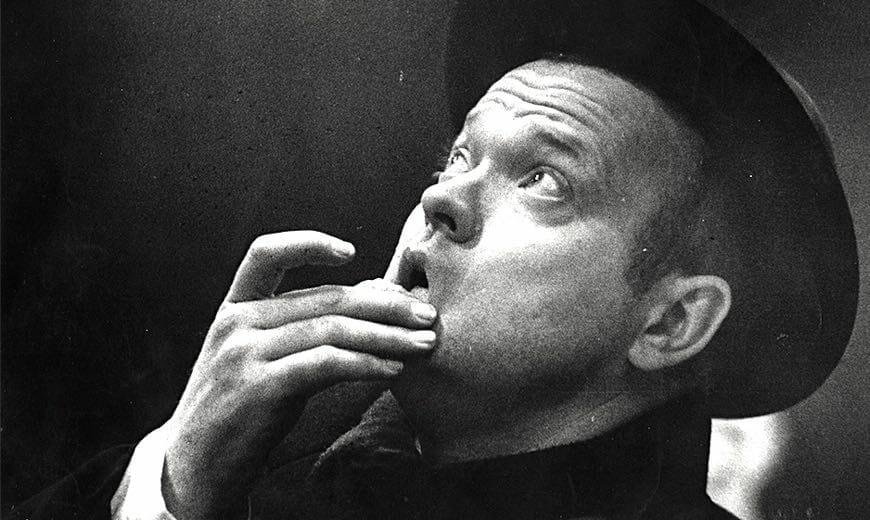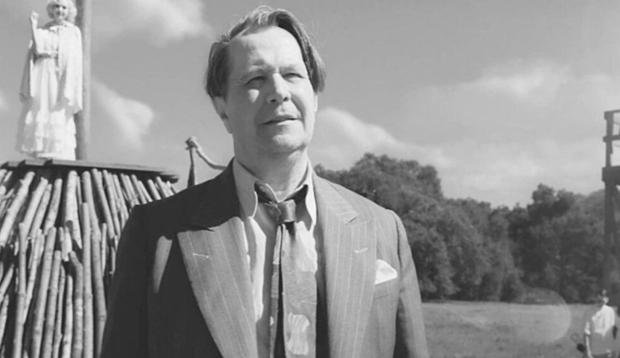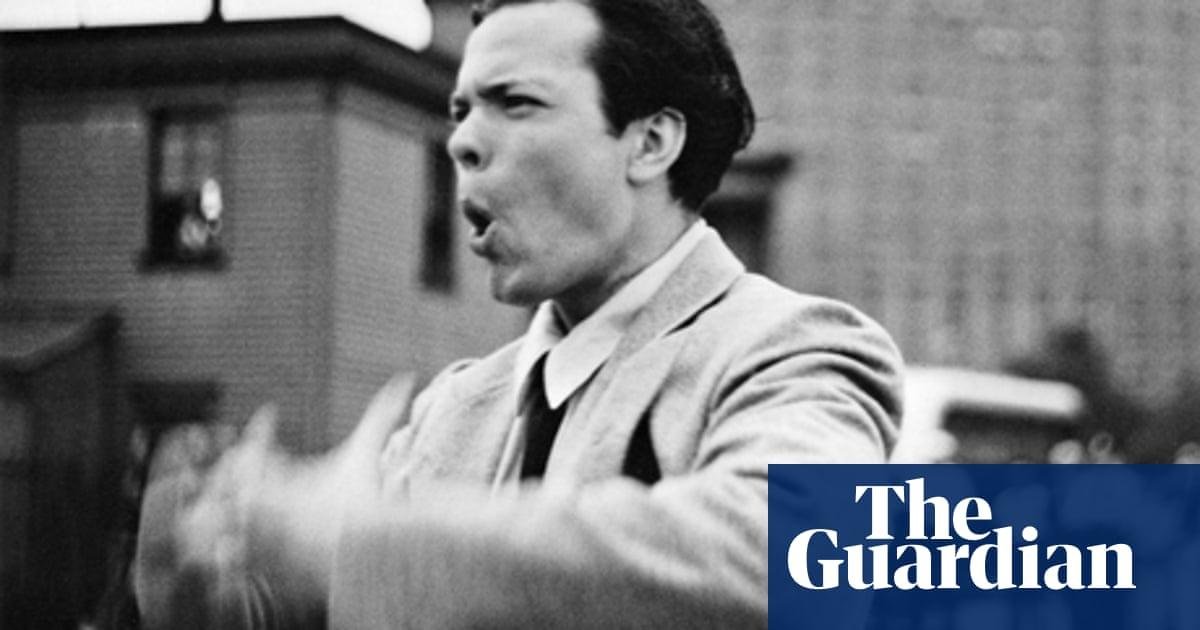Unpacking the Enigmatic Genius of Orson Welles: A Journey Through His Greatest Contributions to Cinema
Orson Welles is a name that evokes a sense of awe and wonder in the world of cinema. He is often regarded as one of the greatest filmmakers of all time, not only for his groundbreaking techniques but also for his enigmatic personality. He was a true visionary who pushed the boundaries of filmmaking, leaving behind a legacy that continues to inspire filmmakers to this day. In this article, we will take a deep dive into Orson Welles’ cinema contributions, exploring his greatest works and the impact they had on the art of filmmaking.
Orson Welles is a name that evokes a sense of awe and wonder in the world of cinema. He is often regarded as one of the greatest filmmakers of all time, not only for his groundbreaking techniques but also for his enigmatic personality. He was a true visionary who pushed the boundaries of filmmaking, leaving behind a legacy that continues to inspire filmmakers to this day. In this article, we will take a deep dive into Orson Welles’ cinema contributions, exploring his greatest works and the impact they had on the art of filmmaking.

Introduction to Orson Welles as a groundbreaking filmmaker
Orson Welles is regarded as one of the most influential and groundbreaking filmmakers of all time. His masterpiece Citizen Kane, often considered the greatest film ever made, revolutionized the way films were shot and edited. Welles was a true visionary who experimented with techniques such as deep focus cinematography and non-linear narrative storytelling. He was also a master of the radio drama, creating the infamous War of the Worlds broadcast that caused widespread panic in 19 Despite his tumultuous career, Welles left an indelible mark on the film industry and cemented his place in cinema history as a true genius.
Orson Welles’ early career in theatre and radio
Orson Welles started his career in theatre and radio, where he quickly made a name for himself as a creative force. He founded the Mercury Theatre, which produced groundbreaking productions such as the infamous 1938 radio broadcast of War of the Worlds. Welles’ innovative use of sound and storytelling techniques in radio earned him critical acclaim and attention from Hollywood. Welles eventually made the transition to cinema, bringing his unique style and cinematic vision to films such as Citizen Kane and The Magnificent Ambersons. His contributions to cinema continue to influence and inspire filmmakers today.
The making of Citizen Kane, considered by many to be the greatest film ever made
The making of Citizen Kane is considered one of Orson Welles’ greatest contributions to cinema. The film was a masterpiece of storytelling and technical innovation, featuring groundbreaking cinematography and sound design. Welles drew from his own experiences as a newspaper magnate, crafting a tale of power, corruption, and the human condition that resonated with audiences then and now. Despite initial controversy, Citizen Kane has stood the test of time and continues to be celebrated as one of the greatest films ever made.

The controversy surrounding Citizen Kane and Welles’ feud with William Randolph Hearst
Citizen Kane is considered by many to be Orson Welles’ masterpiece, but it was not without controversy. The film’s plot, which many believed was based on the life of newspaper mogul William Randolph Hearst, caused controversy and led to a feud between Welles and Hearst. The media mogul tried to block the film’s release and even went so far as to threaten movie theaters with boycotts if they screened it. Despite the controversy, Citizen Kane is still widely regarded as one of the greatest films ever made and a testament to Welles’ incredible talent as a filmmaker.
The innovative use of sound and cinematography in Welles’ films
Orson Welles was a master of innovative filmmaking techniques. One of his most notable contributions to the world of cinema was his use of sound and cinematography in his films. Welles understood the importance of sound and used it to its fullest potential, layering different sounds to create a unique audio experience for the audience. He also experimented with camera angles and lighting, using shadows and depth of field to create a sense of drama and tension. Welles’ films, such as Citizen Kane and Touch of Evil, are still studied and admired for their groundbreaking use of sound and cinematography.
The adaptation of Shakespeare plays for the big screen, including Macbeth and Othello
Orson Welles made significant contributions to the world of cinema with his unique adaptations of Shakespeare‘s plays, such as Macbeth and Othello. His adaptations were groundbreaking and challenged the traditional notions of Shakespearean cinema, with his use of active voice and focus on character development. Welles’ innovative approach to storytelling and his focus on good SEO practices made these films a hit with both critics and audiences alike. These adaptations remain timeless classics and continue to inspire filmmakers to this day.

The impact of Welles’ films on the film noir genre
Orson Welles’ films had a significant impact on the film noir genre, with his groundbreaking work in “Citizen Kane” and “Touch of Evil” still influencing filmmakers today. Welles’ use of deep shadows, unsettling camera angles and morally ambiguous characters helped define the genre, and his innovative approach to storytelling has inspired countless filmmakers in the years since. The influence of Welles’ films on the film noir genre can be seen in everything from the classic films of the 1940s and 50s to the modern-day noir-influenced work of directors like David Fincher and the Coen Brothers.
The later years of Welles’ career, including his work on Touch of Evil and F for Fake
In the later years of his career, Orson Welles created two of his most notable works- Touch of Evil and F for Fake. Touch of Evil, released in 1958, is considered one of the best examples of film noir, thanks to its unique camera angles and use of shadow and light. F for Fake, released in 1974, is a documentary film that showcases Welles’ storytelling abilities, as he seamlessly weaves together various narratives and blurs the line between truth and fiction. Both films are a testament to Welles’ artistic vision and his ability to push the boundaries of cinema.
Welles’ influence on modern filmmakers and the continued relevance of his work
Orson Welles was a true pioneer of cinema. His innovative techniques and storytelling methods continue to inspire modern filmmakers today. The use of deep focus, unconventional camera angles, and nonlinear narratives are some of the techniques that Welles introduced to the world of cinema. These techniques paved the way for filmmakers to experiment with new and creative ways of storytelling, and his legacy can be seen in the works of directors such as Quentin Tarantino, Steven Spielberg, and Martin Scorsese. Welles’ films, such as Citizen Kane and Touch of Evil, still resonate with audiences today, proving the continued relevance of his work in the ever-evolving world of cinema.
Conclusion highlighting the lasting legacy of Orson Welles and his contributions to cinema
In conclusion, Orson Welles was a visionary filmmaker who revolutionized the art of cinema. His contributions to the industry are undeniable, and his legacy continues to inspire filmmakers today. With his groundbreaking techniques in cinematography, sound design, and storytelling, Welles created a new language for the medium of film. His masterpiece, Citizen Kane, remains one of the greatest films ever made and a testament to his genius. His influence can be seen in countless works of cinema that have followed in his footsteps. Orson Welles will always be remembered as a true trailblazer and one of the greatest filmmakers of all time.
For more information about Orson Welles cinema contributions, including movie details, cast information, etc..
check out the filmaffinity page.



